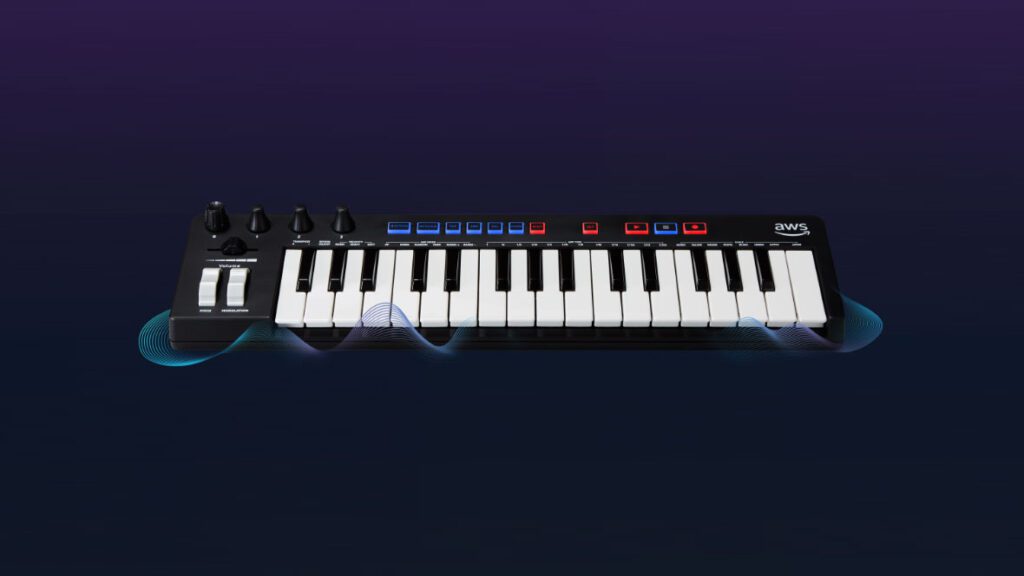AWS Bids Farewell to DeepComposer: The End of an AI Music Experiment
After five years of service, Amazon Web Services (AWS) has decided to cease operations for its innovative yet polarizing AI-powered music keyboard, DeepComposer. This announcement was made in a recent blog post by Kanchan Jagannathan, the program manager for AWS AI devices, who stated that following a thorough evaluation, the decision was made to conclude support for DeepComposer.
What Was DeepComposer?
Launched in 2019 at the AWS re:Invent conference, DeepComposer was marketed as the “world’s first machine learning-enabled musical keyboard tailored for developers.” This unique product was crafted to allow users to compose music using generative AI through a 32-key, two-octave MIDI keyboard paired with a suite of tools for music creation.
Users could either play melodies directly on the physical keyboard or use an on-screen version, then select from various genre-specific models to have DeepComposer generate a full-length song. Once completed, tracks could be played in the AWS console or shared directly to platforms like SoundCloud, making it easy for aspiring musicians to showcase their creations.
However, despite its aspirations, opinions on DeepComposer were mixed. The $99 MIDI keyboard, which eventually became available to all AWS customers in 2020, faced criticism for its user experience. Many users expressed frustration over the keyboard’s performance and criticized the quality of the AI-generated instrumentation.
A Path Forward for Current Users
In the blog post, Jagannathan reassured users that they would continue to have access to their data on the AWS DeepComposer console until September 17, 2025. After that date, all support for the service will officially conclude. This grace period allows users to make any necessary adjustments or to export their musical creations before the service shuts down completely.
The vision behind DeepComposer was much akin to other AWS AI products, such as the DeepLens camera and the DeepRacer AI car. These tools were primarily designed to help users understand and experiment with machine learning, rather than to produce commercially viable products. While this educational approach was commendable, it led to varying levels of satisfaction among users, as pointed out by Frederic Lardinois in his 2019 review, where he emphasized DeepComposer’s role as a learning tool rather than a hit-making machine.
The Bigger Picture in AI Development
The closure of DeepComposer raises questions about the future of experimental AI technologies in the music industry and beyond. As companies like AWS pivot their focus, it’s clear that innovation must strike a balance between excitement and usability. DeepComposer’s integration of AI into music composition was cutting-edge, but it also highlighted the challenges of marrying complex technology with user-friendly applications.
In an evolving landscape where artificial intelligence continues to redefine creative processes, the failure of DeepComposer serves as a reminder of the hurdles that remain in making AI tools accessible and effective for all users.
Conclusion
While AWS DeepComposer may be bowing out, the lessons learned from this ambitious endeavor will undoubtedly influence future developments in AI-powered creativity tools. As technology and user needs evolve, there are bound to be fresh innovations that successfully marry user experience with sophisticated AI capabilities, paving the way for the next generation of music composition tools and beyond.




